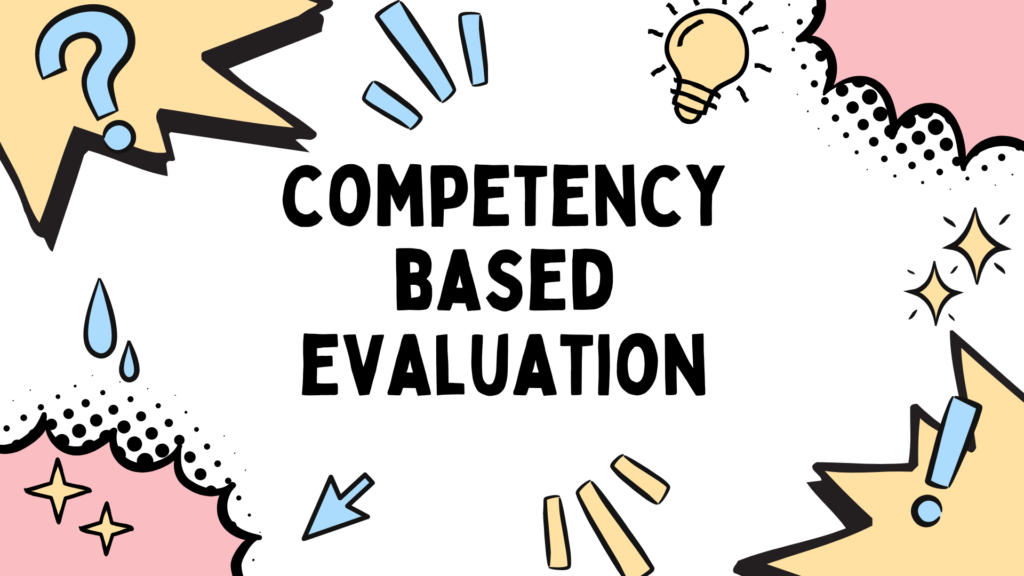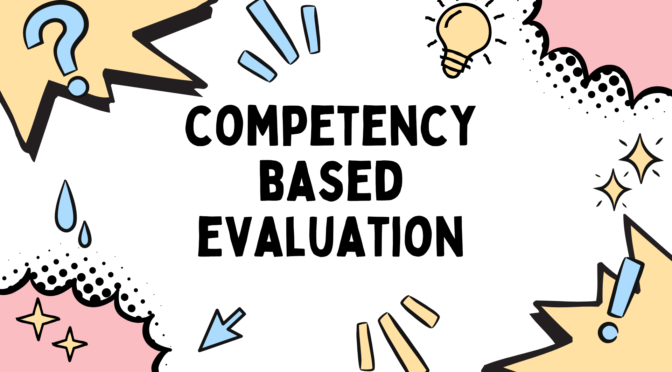Competency-based evaluation is an assessment approach that focuses on measuring an individual’s performance against a set of predetermined competencies or skills. Rather than evaluating general knowledge or qualifications, competency-based evaluations aim to assess specific skills and abilities required for success in a particular role or field.
The criteria for judging the appropriateness of a test items under competency-based evaluation is whether or not it successfully provides a means to evaluate the given competency.
Here are the key features and benefits of competency-based evaluation:
- Clear expectations: Competency-based evaluations provide clear guidelines and expectations for performance. They define the specific skills, knowledge, behaviors, and attributes that are necessary for effective job performance.
- Objective assessment: By focusing on specific competencies, this evaluation method promotes objectivity in assessing performance. It provides a framework that allows evaluators to objectively measure an individual’s skills and behaviors against predetermined criteria.
- Individual development: Competency-based evaluations can be used to identify areas of strength and areas for improvement in an individual’s performance. This information can then be used to create targeted development plans to enhance skills and address any competency gaps.
- Alignment with organizational goals: By aligning evaluation criteria with the competencies needed for success within the organization, competency-based evaluations help ensure that individuals are assessed based on the skills and behaviors that directly contribute to achieving organizational objectives.
- Performance differentiation: Competency-based evaluations facilitate a more nuanced assessment of performance. By evaluating specific competencies, it becomes easier to differentiate between high performers, average performers, and those who may be struggling in specific areas.
- Hiring and promotion decisions: It is use in the selection and promotion processes. By identifying the key competencies required for a role, organizations can assess candidates or employees against these criteria to make informed decisions about hiring or promoting individuals.
Merits of Competency Based Evaluation:
- It is helpful in determining which of the specific competencies particular child has attained.
- Listing the competencies which were or were not attained by pupils.
- Classifying children in terms of masters, partial masters and non-masters with regard to the stated competencies.
- Evaluating all aspects of a competency through a reasonably large numbers of items or test questions
- Eliminating chance errors which are likely to influence the results.
- Devising proper strategies for teaching-learning.
When conducting this, it is important to define the competencies or skills that are relevant to the specific job. These competencies should be observable, measurable, and tied to the goals and objectives of the organization. Evaluators can then use a variety of methods such as observation, self-assessment, interviews, or performance metrics to gather evidence of an individual’s competency levels.
Overall, competency-based evaluations provide a structured and objective approach to assessing performance, promoting individual development, and aligning organizational goals with talent management processes.



of course like your website but you need to test the spelling on quite a few of your posts. Many of them are rife with spelling problems and I to find it very troublesome to inform the truth nevertheless I’ll certainly come again again.
when i read this article, i got some useful information for me to learn. thank you for publishing this article.